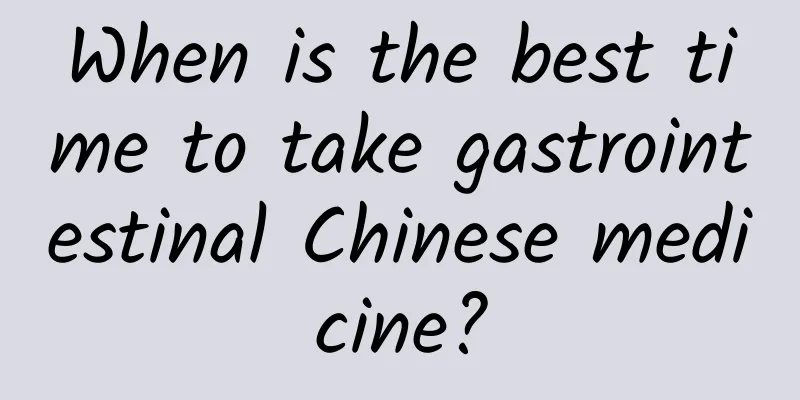When is the best time to take gastrointestinal Chinese medicine?

|
Who knows that winter is getting closer and closer, and many people have experienced some gastrointestinal conditions such as diarrhea and abdominal pain, especially those who are busy in the workplace for a long time, their stomachs are even more fragile, so many people hope to use some traditional Chinese medicine to carry out a proper gastrointestinal conditioning. So when is the best time to take gastrointestinal Chinese medicine? I hope my explanation below can give you some inspiration on this issue. Before meals: Generally take the medicine 30 to 60 minutes before meals. Chinese medicine taken before meals to treat diseases located in the lower part of the body (intestines, liver and kidney deficiency, or below the waist) should be taken before meals to allow the medicinal properties to reach the lower part of the body. Because in the empty stomach state, the medicinal liquid can directly contact the gastrointestinal mucosa and enter the intestine through the stomach more quickly, so that more of it can be absorbed and exert its effect, without being diluted by food in the stomach and affecting its efficacy. After meals: Generally take the medicine 15 to 30 minutes after meals. Chinese medicine taken after meals is suitable for treating diseases located in the upper parts of the body (such as the heart, lungs, chest, diaphragm, and above the stomach). The medicine should be taken after meals to allow the medicinal properties to move upward. Stomachic drugs and drugs that irritate the gastrointestinal tract (such as Ganlu Xiaodu Dan, etc.) should be taken after meals to reduce the damage of the drugs to the gastrointestinal mucosa; drugs with higher toxicity should also be taken after meals to avoid adverse reactions caused by too rapid absorption of toxic drugs. Between meals: that is, take the medicine between meals to avoid the impact of food on the medicine. Medicines for treating spleen and stomach diseases should be taken between meals. Through the above paragraphs, I have given a brief description. I believe that those who have poor stomachs should have a clear understanding of when is the best time to take gastrointestinal Chinese medicine! Of course, I would like to emphasize again that after our stomachs are damaged, it will not happen overnight to fully recover health. I hope we can achieve the goal of getting rid of the disease through long-term diet and drug conditioning. |
<<: What are the benefits of stewing snow pear with Sichuan Fritillary Rock Sugar?
>>: Can I take Lingzhi powder on an empty stomach?
Recommend
The efficacy and function of bougainvillea
Traditional Chinese medicine has always been the ...
The efficacy and function of tung bark
Tung bark is often used as a medicinal ingredient...
The efficacy and function of crane bone
Crane bone is a kind of traditional Chinese medic...
The smoke from forest fires is more terrible than you think
Wildfire smoke will be a persistent problem. As t...
This mountain looks so beautiful!
We always have a preference for mountains. Whethe...
The efficacy and function of southern hawthorn
The important components of southern hawthorn inc...
The efficacy and function of sweet clover
Nowadays, our living standards are constantly imp...
I heard that poop can also help you lose weight, so would you like to try it?
gossip Ladies and gentlemen, if one day, you are ...
The efficacy and function of Featherleaf Mountain Leech
Chinese medicinal materials have good effects on ...
Dreaming about Zhongshan: Migrating to the West
…In 1937, when the Anti-Japanese War broke out, o...
Who can't drink wolfberry bud tea?
Wolfberry bud tea is a relatively common plant Ch...
Shandong braised chicken, Sichuan spicy chicken...what's the best thing about Chinese chicken?
Mixed Knowledge Specially designed to cure confus...
The efficacy and function of Rhizoma Coptis
Coptis chinensis is a traditional Chinese medicin...
The efficacy and function of Azuki
The nutritional value of Azuki shiitake is rich a...









